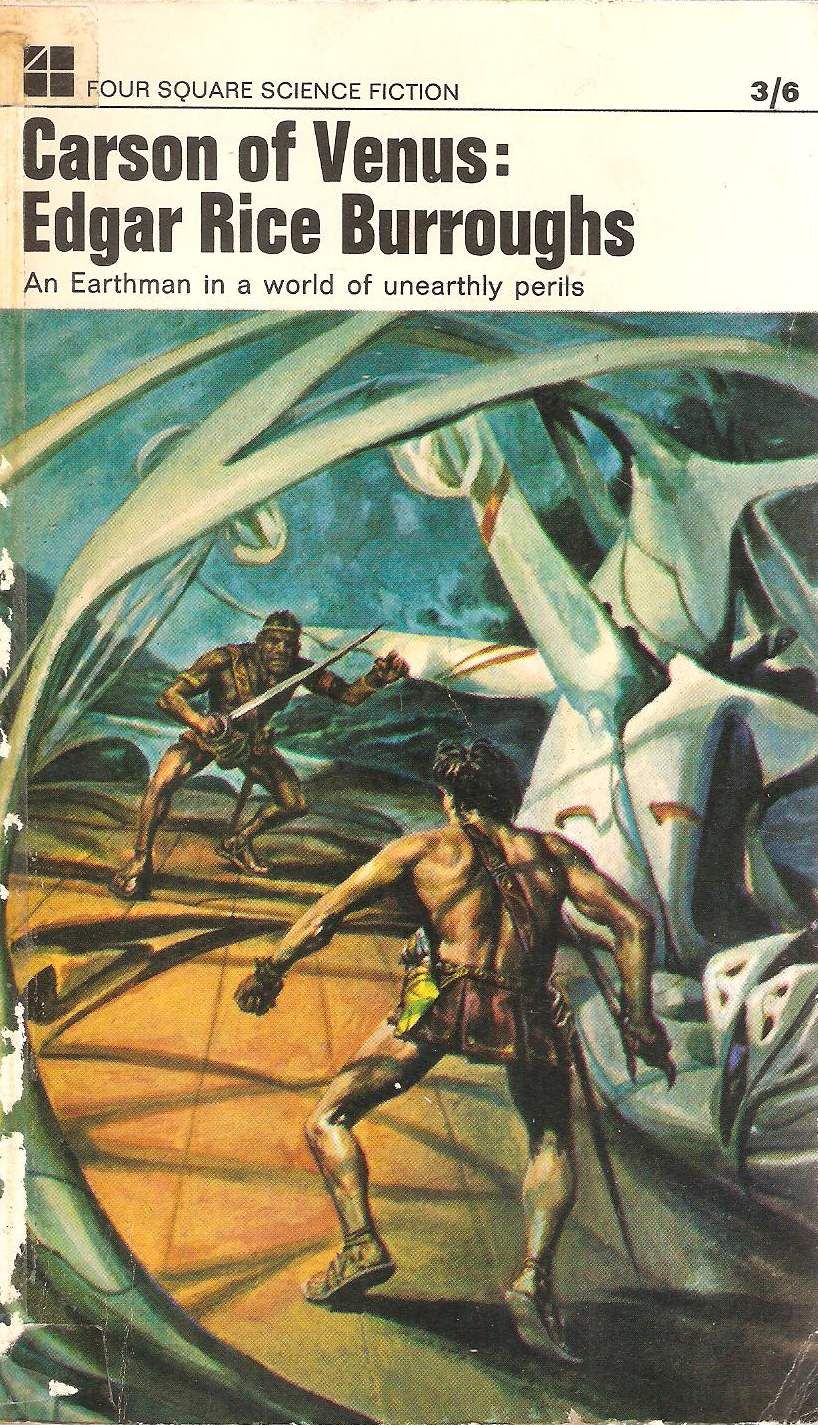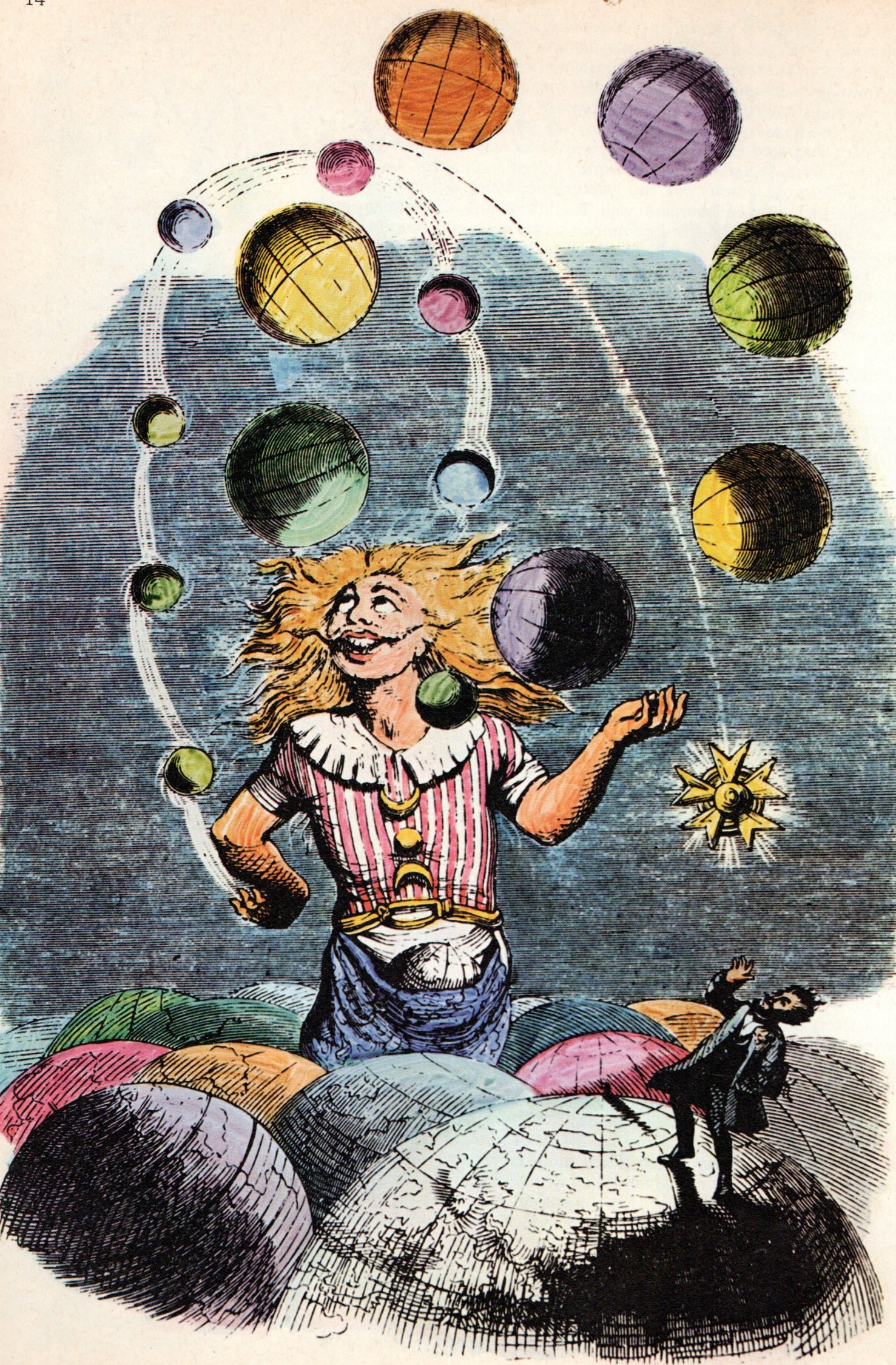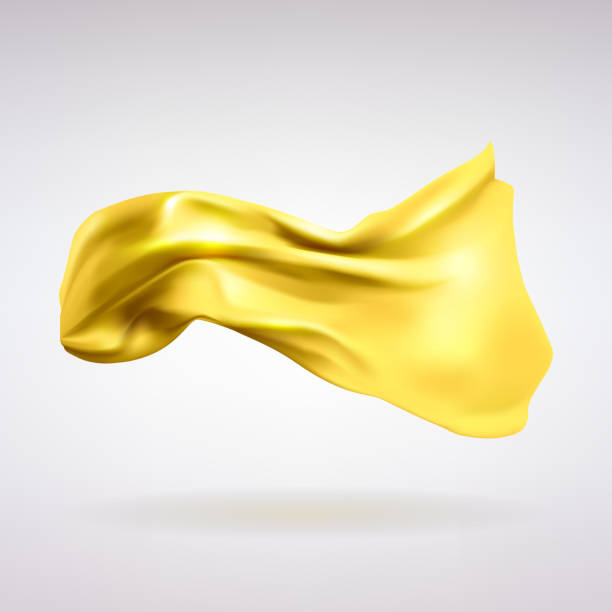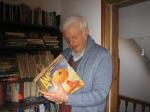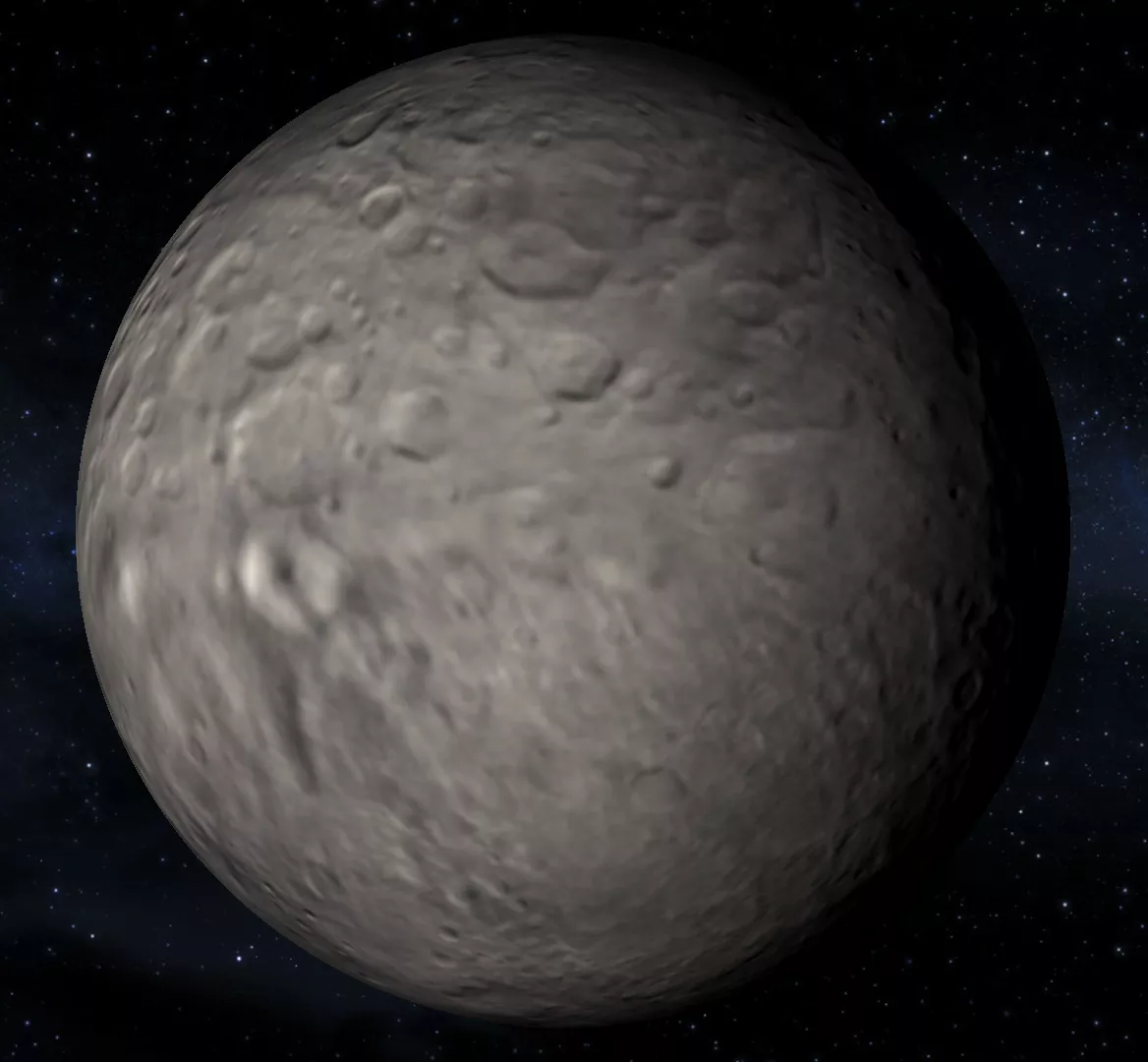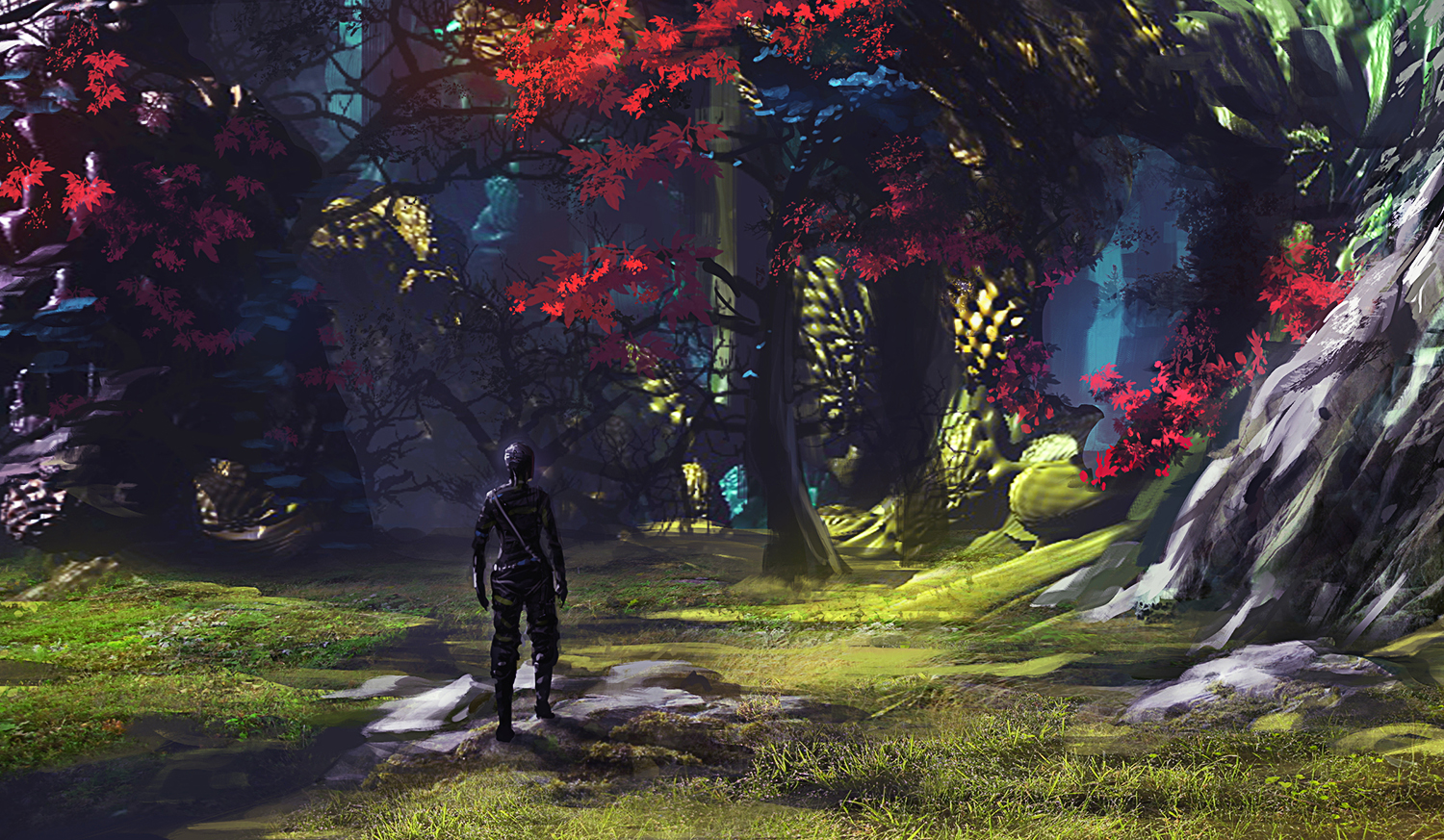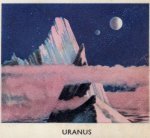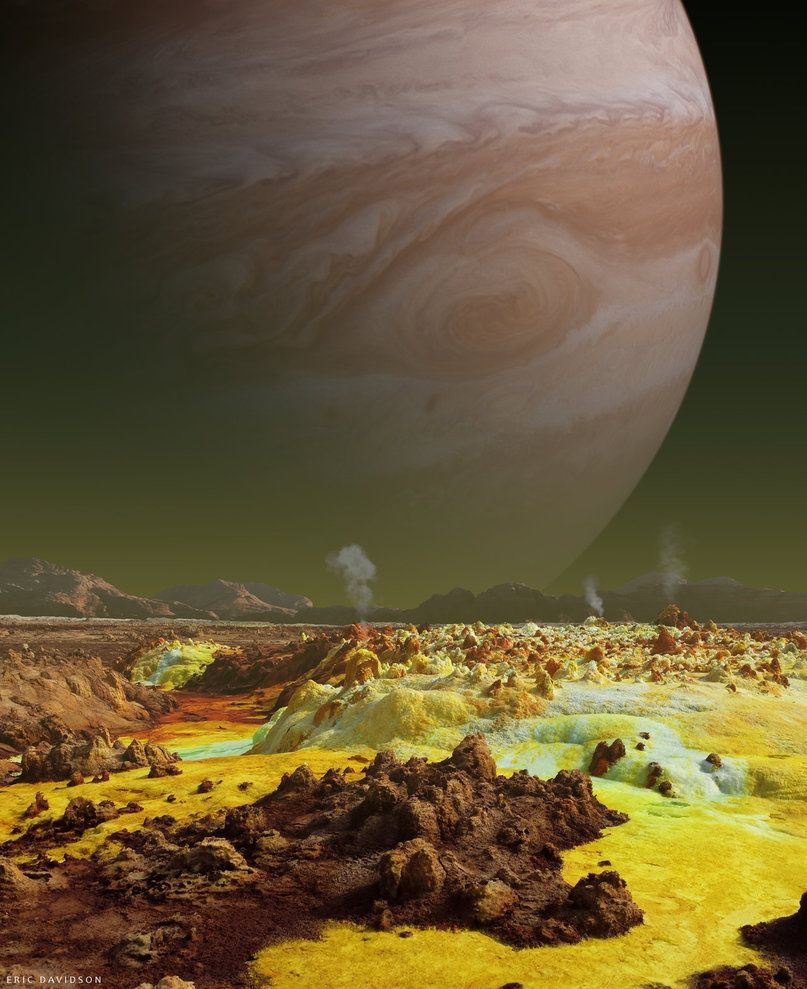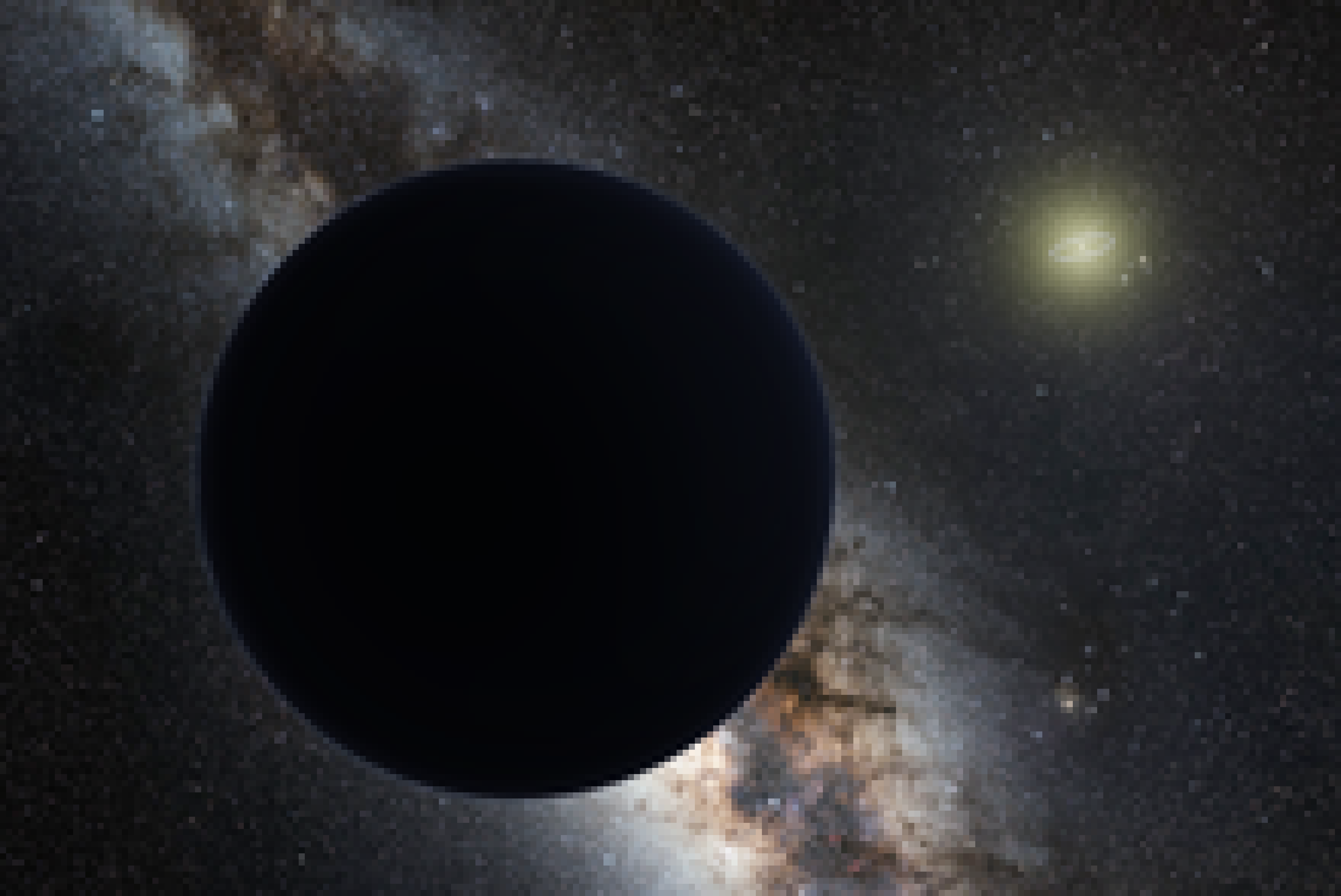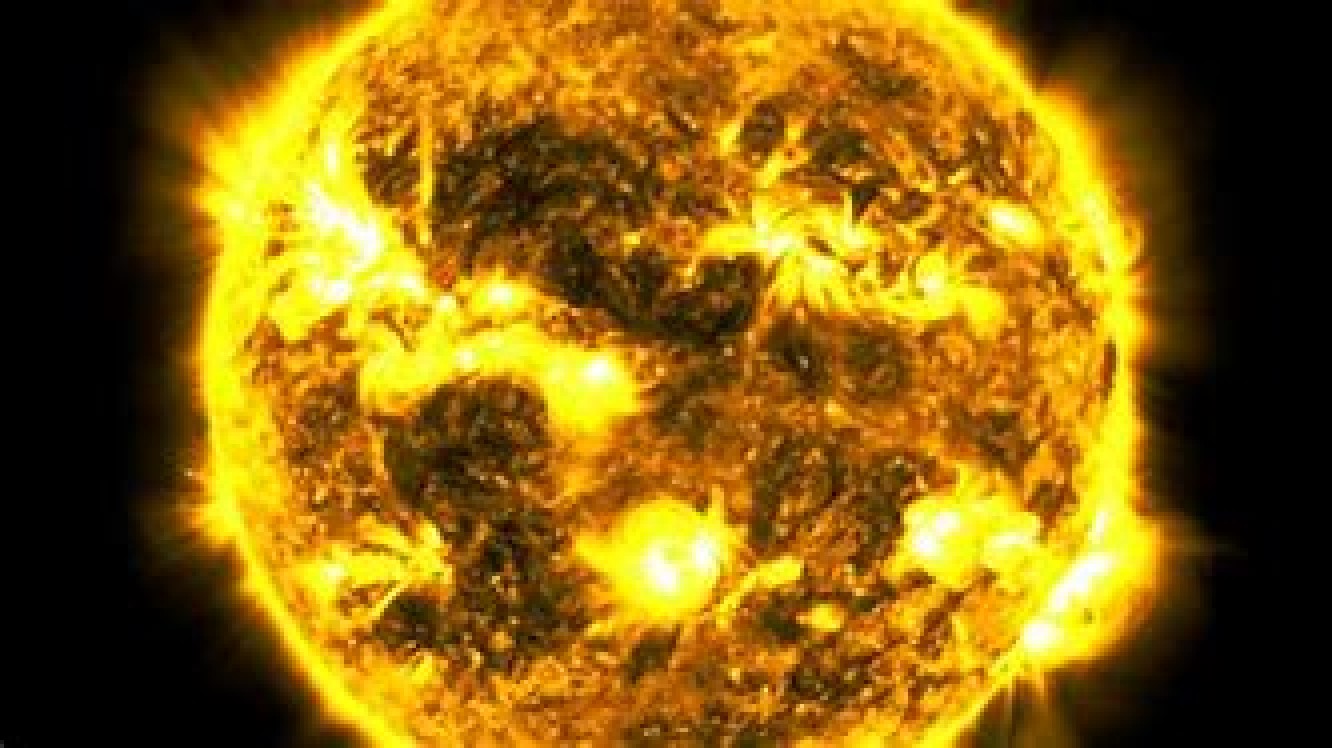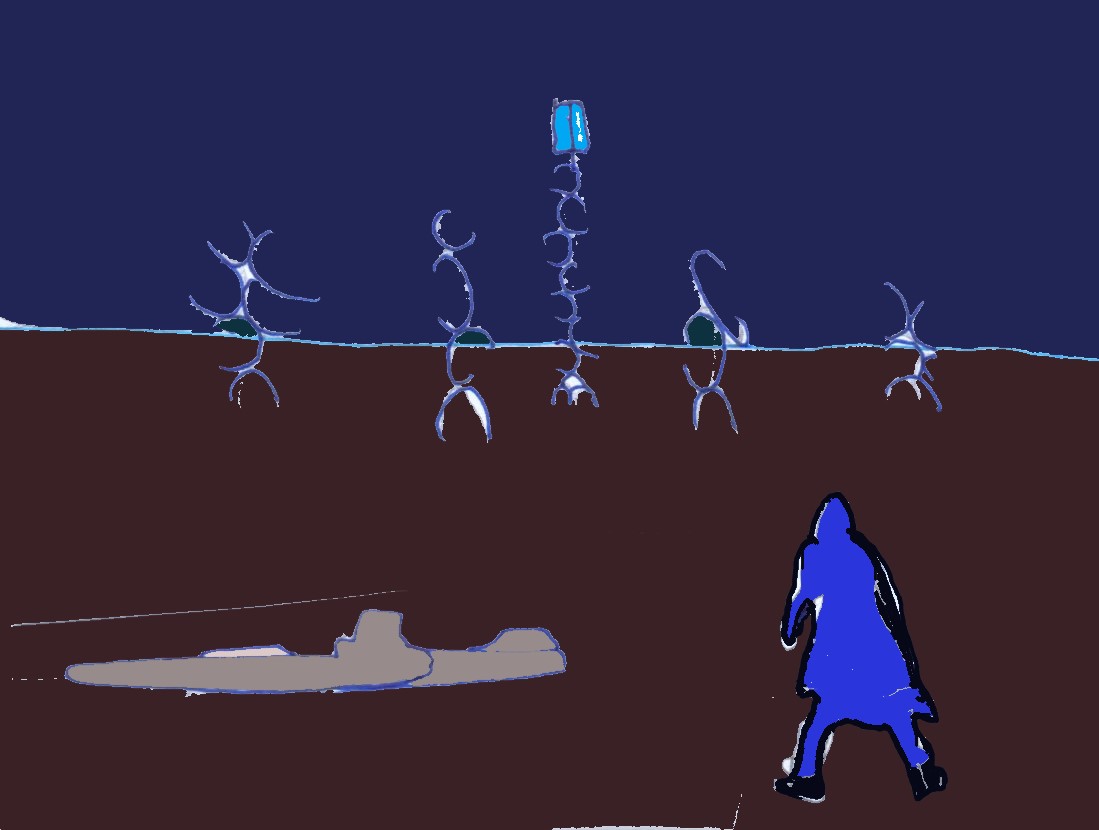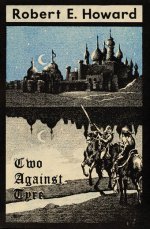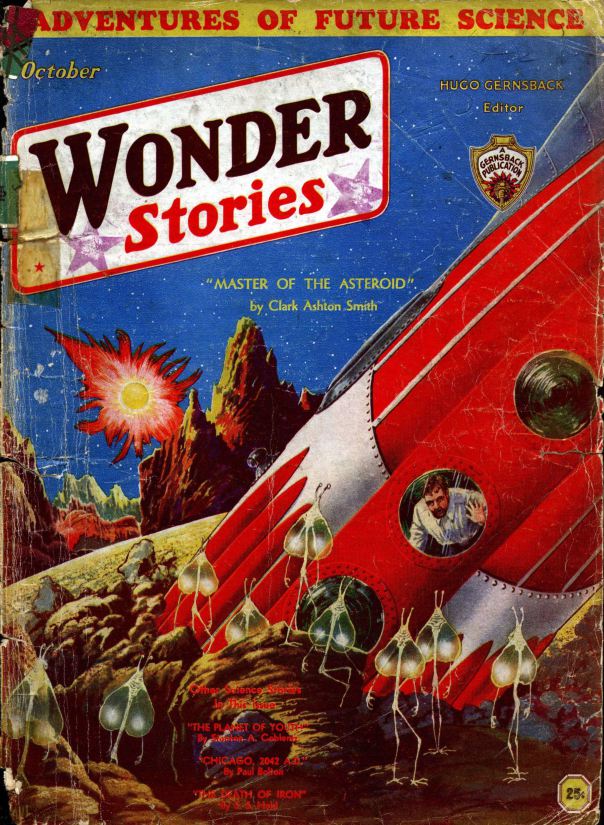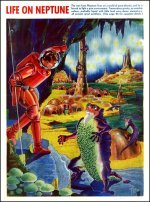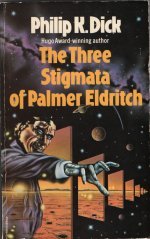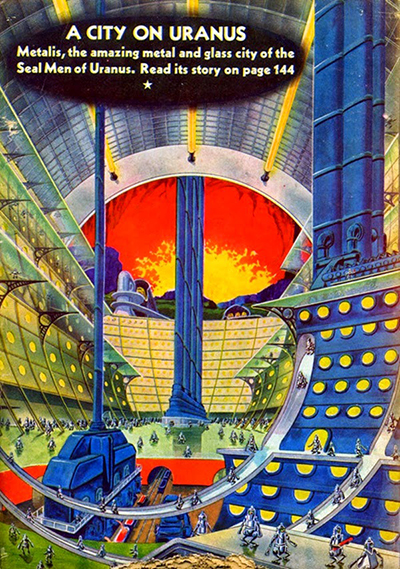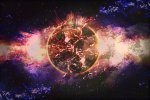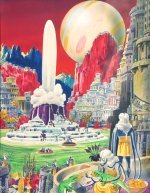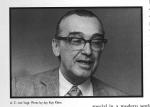- Home
- >>
relations with the real
[ + links to: Author Heaven - A Barsoom and NSS Mars match-up - But is it NOSS? -
Enceladus and Europa: the last OSS worlds? - GAWI - The influence of the OSS -
The inorganic character of RSS Mars - Is an intersolar civilization easy to swallow? -
Man to Mars and Moon - The many-solar-systems interpretation - NOSS: how far can we go -
The Old Space Program - ORTs - The Reality Distortion Field - Science catching up? -
Stirling and the NOSS Gateway - Stretching the OSS / Re: Stretching the OSS ]
[ Jamie Ross' response to my Diary entry, Musk aiming for the wrong target, inspired me to open this forum and I hope that he and you, the readers, will have more to say. Send me your views on heritageofdreams@aol.com. and I will add them to the page.]
turbulent interaction
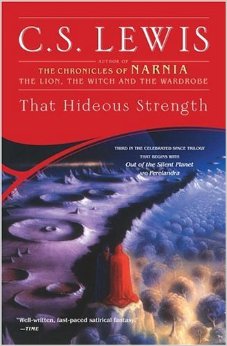 real vs OSS - the ambivalent Moon
real vs OSS - the ambivalent MoonWith stubborn escapists like me around, the OSS can seem not so much "science fiction" as "science versus fiction".
Nevertheless it can't be an all-out war. Fraternization between what's on the page, and what's for real, is inevitable. Fiction and science need each other.
In the first place, fiction - even when escapist - needs some ointment or greasepaint of science to act out that suspension of disbelief which allows a tale its own terms of realism. In science-fantasy the science element is an essential prop. No more, but also no less.
Moreover science plays a vital catalytic part in the genre. It's obvious, fiction couldn't have got off the ground without some stimulus from earlier scientific beliefs. (Schiaparelli >> Martian canals >> Barsoom.) Furthermore, later science, also, can lend ideas for fiction to use. (Voyager images of braided Saturnian rings >> electromagnetic interference from alien spaceship at Saturn in Footfall.)
In the second place, science needs fiction. This might not seem so obvious, but science needs to have meaning in order to be more than just noise. And the assignment of meaning is a creative act, and creation is dual-natured, being a collaboration or tussle between fact and imagination. (Read it better argued in Zen and the Art of Motorcycle Maintenance.)
So far, so general. But mapping it out, exploring the wriggly boundaries - that's a different matter. An enormous, endlessly fascinating topic.
Part of it is just the mapping of the history of scientific beliefs about the Solar System and their relation to the fiction of the day. That means, for example, charting the decline of belief in intelligent life on Mars.
I quote from the site https://theplanets.org/phobos/ :
In the late 1950s and early 60s, unusual orbital characteristics of Phobos led to speculations by astronomers that it might actually be hollow. Russian astrophysicist Iosif Samuilovich Shklovsky suggested a “thin sheet metal” structure for Phobos and this lead [sic] to even more speculation that the moon may be of artificial origin. Fred Singer, who at the time was science advisor to U.S. President Dwight D. Eisenhower, said of Shklovsky’s theory:
If the satellite is indeed spiralling inward as deduced from astronomical observation, then there is little alternative to the hypothesis that it is hollow and therefore Martian made.
So there you go. Early Sixties!
a zero-sum game?
The idea that science's gain is fiction's loss, pure and simple, is a handy theme with which to start the inquiry. Might as well begin with an extreme view, and then lurch away from it.
Let me quote an eerie poem about a unicorn. I encountered it as a child, in a book of children's verse...
Stid: I remember that doggerel.
Zendexor: It may be that, but, if so, it's doggerel with power. Read it and get spooked with its appropriateness to this site!
The Unicorn by E V Rieu
The Unicorn stood, like a king in a dream,
On the bank of a dark Senegambian stream;
And flaming flamingoes flew over his head,
As the African sun rose in purple and red.
Who knows what the thoughts of a unicorn are
When he shines on the world like a rising star;
When he comes from the magical pages of story
In the pride of his horn and a halo of glory?
He followed the paths where the jungle beasts go,
And he walked with a step that was stately and slow;
But he threw not a shadow and made not a sound,
And his foot was as light as the wind on the ground.
The lion looked up with his terrible eyes,
And growled like the thunder to hide his surprise.
He thought for a while, with a paw in the air;
Then tucked up his tail and turned into his lair.
The gentle giraffe ran away to relate
The news to his tawny and elegant mate,
While the snake slid aside with a venomous hiss,
And the little birds piped: ‘There is something amiss!’
But the Unicorn strode with his head in a cloud
And uttered his innocent fancies aloud.
‘What a wonderful world!’ he was heard to exclaim;
‘It is better than books: it is sweeter than fame!’
And he gazed at himself, with a thrill and a quiver,
Reflected in white by the slow-flowing river:
‘O speak to me, dark Senegambian stream,
And prove that my beauty is more than a dream!’
He had paused for a word in the midst of his pride,
When a whisper came down through the leaves at his side
From a spying, malevolent imp of an ape
With a twist in his tail and a villainous shape:
‘He was made by the stroke of a fanciful pen;
He was wholly invented by ignorant men.
One word in his ear, and one puff of the truth-
And a unicorn fades in the flower of his youth,’
The Unicorn heard, and the demon of doubt
Crept into his heart, and the sun was put out.
He looked in the water, but saw not a gleam
In the slow-flowing deep Senegambian stream.
He turned to the woods, and his shadowy form
Was seen through the trees like the moon in a storm.
And the darkness fell down on the Gambian plain;
And the stars of the Senegal sought him in vain.
He had come like a beautiful melody heard
When the strings of the fiddle are tunefully stirred;
And he passed where the splendours of melody go
When the hand of the fiddler surrenders the bow.
Stid: Right then, who's the ape? Come on, own up!
Harlei: I reckon the ape is that publisher who decided not to accept any more Low Canal tales from Leigh Brackett because belief in that sort of Mars had become scientifically out of date.
Zendexor: You're also in danger of having to admit that some of the "apes" were great sf writers. I'm thinking of Asimov now, who repented of his early OSS type tales e.g. The Callistan Menace because he wanted to be scientific. Far be it from me to denigrate Asimov, but he soon grew into a fictioneer who put science first.
Stid: Well, an ape's an ape... if that's how we're defining respecters of truth.
Zendexor: Ah, yes, truth. At this point, let's just have another look at The Unicorn. What is it actually saying?
Stid: It's saying that once the truth comes out, you have to abandon your illusions. Fantasy is fantasy and real is real, and they're not the same.
Zendexor: I can picture you, Stid, as you nod at the poem and murmur approvingly, "hmm, sound feller this E V Rieu, knows the difference between a truth and a fairytale." But - here's the big "but" - as a matter of fact, though this may well be what the poem means, it isn't what it's saying...
What it is actually saying, is: that there was a Unicorn, and then there wasn't.
Reality is not constant. Reality alters according to fluctuating mental forces. The unicorn waves in and out of substantiality.
That's what the poem is saying - what the words on the page are stating. Not that the Unicorn never was, but that it had its being and then faded.
And the implication is -
Harlei: It might come back! If enough people believe in a Unicorn -
Stid: You're nuts, both of you.
Zendexor: But are we any more nuts than (for instance) those cosmologists who try to put over the "Strong Anthropic Principle"? Seriously suggesting that the existence of the universe, not just the understanding of it but the very existence of it, depends upon the thinking of cosmologists to sustain it...
Harlei: What concerns me a bit, Zendexor, is that all this grand philosophical attempt at enlarging the remit of the term "reality" sounds a wee bit like justification - as if you think we need to make excuses for preferring Barsoom to space-probed Mars.
I on the other hand make no excuses. I unashamedly prefer the blunt approach, which says, we're escapists, and proud of it; we don't care a fig for scientific accuracy, we just want Solar System adventures like we used to have in the good old days, and that's all there is to it.
Zendexor: I'm all for saying "Yah boo" to science when it gets in the way. But it doesn't always get in the way. Sometimes it provides a seed from which fictions grow, or rather a nest from which fictions fly.
As for excuses... why shy off from mentioning benefits that accrue? Escapism may not need an excuse, but if it brings a reward, shouldn't we say so?
Let's soar to philosophical heights on the wings of legend.
I like comparing big chunky tomes on the history of Britain - such as works by G M Trevelyan and Keith Feiling. And for a change, after those classics, I've been wading through Norman Davies' book The Isles: A History. A great read, and an intriguing contrast to the other two more "nationalist" historians who see the history of the British Isles coloured with UK-statist hindsight.
But really, it's also fun to see how Davies unwittingly argues against himself. I'm about half way through his book at the time of writing this. So far it hasn't occurred to him to ask, how did we reach the situation where a Norman Davies has to swing the pendulum of interpretation against a G M Trevelyan? In other words, why do historical legends grow so powerful, that they need to be debunked? Why do they keep pushing up like determined weeds?
My answer is: they're not weeds.
History is soil, legends are the crop.
Legends are, to put it another way, the next stage up from bog-standard reality. To change metaphor again - from agricultural to industrial metaphor - history is a legend-factory.
That includes the history of scientific notions about our Solar System.
Science is the soil, the Old Solar System is the crop. Happy reading, reapers!
Isaac Asimov, "The Callistan Menace" (Astonishing Stories, April 1940); Norman Davies, The Isles: A History (1999); Larry Niven and Jerry Pournelle, Footfall (1985); Robert M Pirsig, Zen and the Art of Motorcycle Maintenance (1974)
comments
2018 March 16th From Robert Gibson:
Zendexor, you remind me of an article I wrote some years back on what I dubbed The Paxman Fallacy (see https://ezinearticles.com/?The-Paxman-Fallacy&id=4307038 ).
Broadcaster Jeremy Paxman wrote a book on The English in which he ridicules the idea of a predominantly rural England that persists in the English heart.
Somehow, guffaws Paxman in bewilderment, there exists
in the collective unconscious of Englishmen another
England, "not the country in which the English actually live, but the
place they imagine they are living in".
Well, actually, most of the surface area of this country is still rural. What Paxman means is that most English people actually live day to day in an urban environment, so they should alter their views accordingly, the silly billies.
To which I say, rubbish. To quote my article:
It is this majoritarian view, applied to the dreams and symbols of a nation, that I call the Paxman fallacy. It ignores the great truth that souls are (in a spiritual sense) trace elements. Character is a minority thing, a tincture that stains the rest with its special colour. If you hesitate to agree, try applying the Paxman approach to The Glory That Was Greece. What, to us, is the soul of Ancient Greece? Why do we bother to think about it? Answer: minority things! Its philosophy; its intellects; its democracy. All unique for the time, but a trace element only.
I might add the same kind of thought about the ancient Israelites. They are remembered for their monotheism, but at the time that might have seemed, to a Paxman of the reign of Ahab for instance, as just a tincture...
Souls aren't massive, you see. They don't have much effect on a pair of scales.
And the debunking of nationalist myths by means of pointing out historical anachronisms is just as futile as Paxman's majoritarian mind-set. The whole point of nationalist myths is their retrospective creativity.
Souls aren't massive but they're inescapably fine-grained as they seep through cracks in the materialist mentality - as is happening right now with the literary resurgence of the Old Solar System. Soul, and thus myth, is going to win.
2018 March 16th from Jamie Ross
There's a complicated topic, opens a whole can of worms!
One of the current afflictions of current society is scientism or "science, and only science, describes the world as it is in itself,
independent of perspective". In the case of the Old Solar System,
there is the notion that we understand everything about the nature
of the solar system from a few robotic missions. It's just not true
and new discoveries are constantly overturning previous conclusions.
My planet of interest, Uranus, may actually have oceans of molten
diamonds with diamond icebergs floating on its surface? That's
pretty mindblowing and will certainly show up in my stories.
As Zendexor points out, the technology and enviroments and history
are merely props for our stories. We are technobards, story tellers
to raise the imagination and explore ideas and and issues in
creative ways. Violet's story of humans selling off their children
to be tortured to death in return for a enhancing drug [see On the Shoreline of Darkness]... isn't
really so far off from child trafficing. The fact that the
protagonist seems ok with this and only gets upset when he sees a
girl like his daughter is a disturbing reflection on how complacent
we can be.
Stories teach, educate and entertain. They get us through difficult
times and help us sort out out world. As Science Fiction writers,
we have this amazing palette to work from, to create worlds and
situations, to express our visions. To keep our readers, we have
to maintain their suspension of disbelief, so they follow the trail
we have created. Bits and seeds of "reality" can provide that.
Consistency can make the wildest fantasy believable. Inconsistency
is usually what drags the reader back out. I have watched more than
one TV show where I just can't keep the keep going with it.
The last point is one I made before, fantasy can inspire people to
create reality as well so they are intertwined. If you want to go
to a deep philosophical level, our fantasies may even be "leak
through" of realities of other existences that we as larger beings
are aware of (sorry thats the Druid in me).
So science is a central theme is what we write, as opposed to magic
or vampires. But its not as clear cut as some may be lead to
believe, just look at quantum physics and the latest space probes
... One of my favourite TV series, Firefly, successfully overlaid a
technofuture on what was basically a Post-US Civil War story and it
worked. So go for it!
[Another note from Jamie:]
I find this particularly relevant to the discussion at hand:)
" ... It’s one of the more common modern form of doublethink, as I commented in a previous post, to allow that of course the universe we experience is a mental construct rather than an objective reality, and then to turn right around and insist that some currently popular features of that mental construct—the deadness, mindlessness, and meaninglessness of the cosmos, for example—are objectively real truths, while features of mental constructs that our culture doesn’t encourage—the presence of life, mind, and meaning in the nonhuman cosmos, for instance—are just plain wrong..." - John Michael Greer
https://www.ecosophia.net/blogs-and-essays/the-well-of-galabes/the-course-the-nations-run/
2018 March 16th from Zendexor:
RG and Jamie have buttressed my teleological tendencies from their different directions. (Sorry, that sentence is over-alliterative. Must take more care over style.) Science isn't any good at meaning; that's the brutal plain truth. Therefore, to have any point to it, science must look beyond itself - or rather, must allow people to look beyond itself; must not try to hog the scene. I suppose anyone with any sense knows this. But the implications for literature can be startling.
By the way, Jamie, I'm agog to hear more of your Uranian theories, and so is RG who has made that planet his main stamping-ground... oceans and icebergs on the Seventh World, really? I once asked a space scientist if Uranus and Neptune could have surfaces, and he said, rather unsatisfactorily, "it depends what you mean by a surface..."
Finally, the notion that our OSS may be a "leak through" from another dimension chimes in with a lot of our secret thoughts, I dare say... some of it is reflected in Valeddom where influences are actually cited. Also on a more jokey level there were the amusing L Sprague de Camp tales where alternate universes included some literary scenarios brought to life.
For some convergence in the continua evinced by the influence of the Tintin adventure Objectif Lune upon Space-X, see Astronautical Conjunction.
Robert F Young's The First Mars Mission, which encompasses both OSS and RSS versions of the Red Planet, is discussed in Ambivalent Mars.
For the Martian sky and the rings of Saturn see The good guesses of yore.



